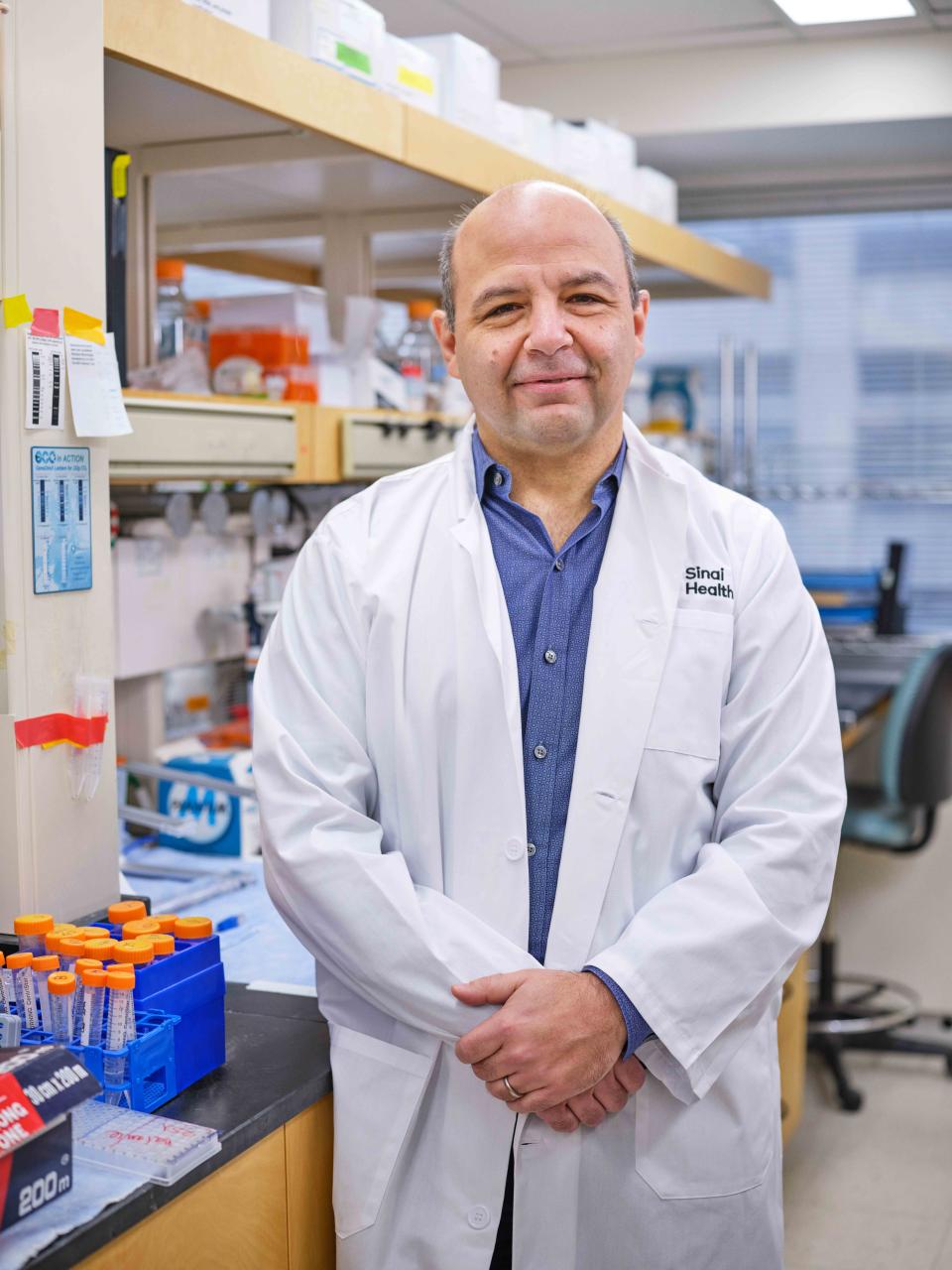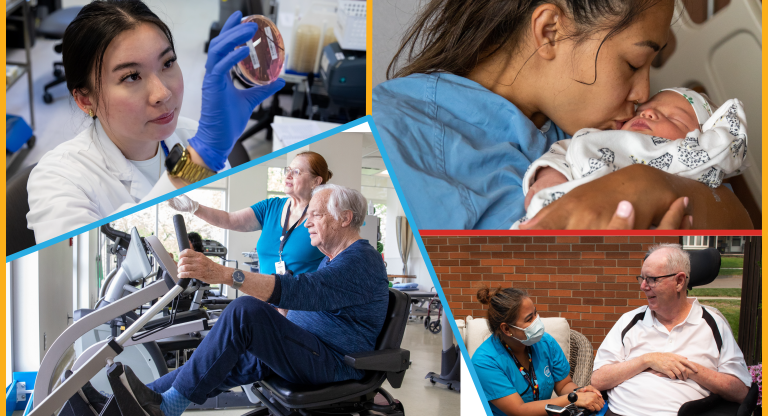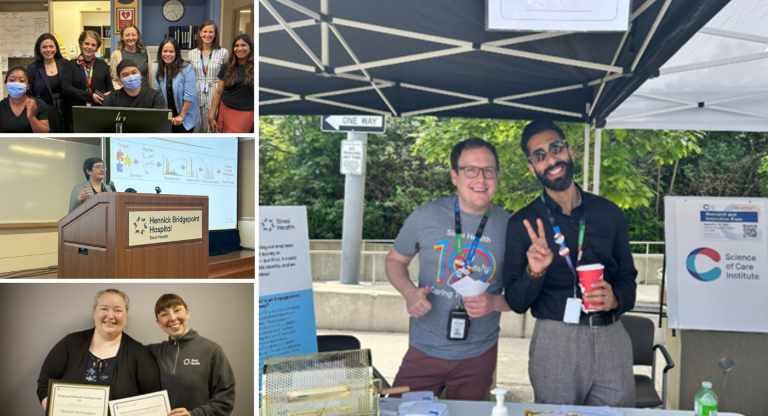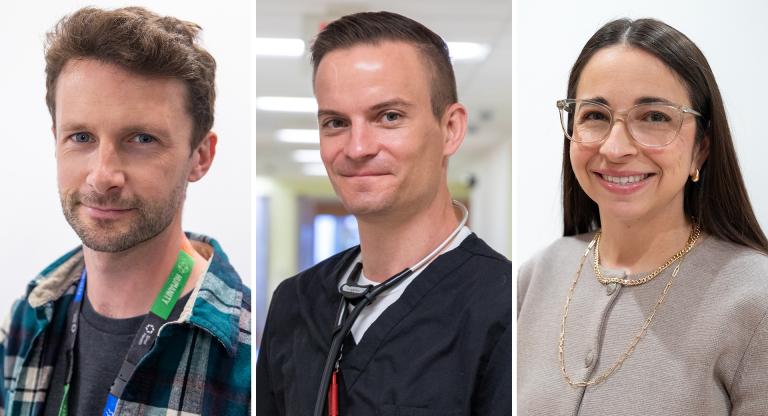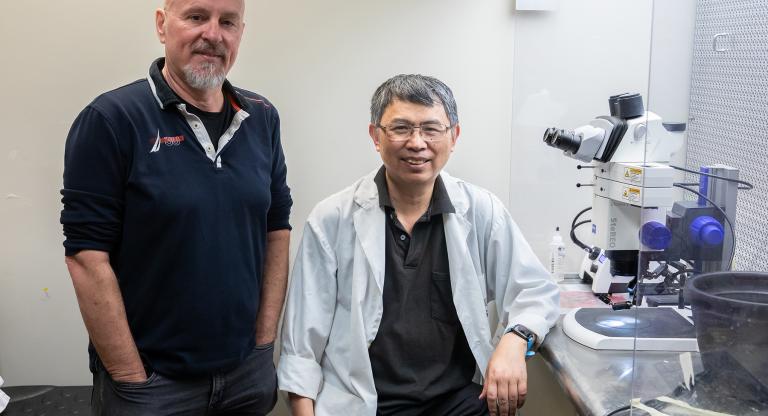LTRI scientist Daniel Durocher celebrated as pioneer in precision oncology medicine
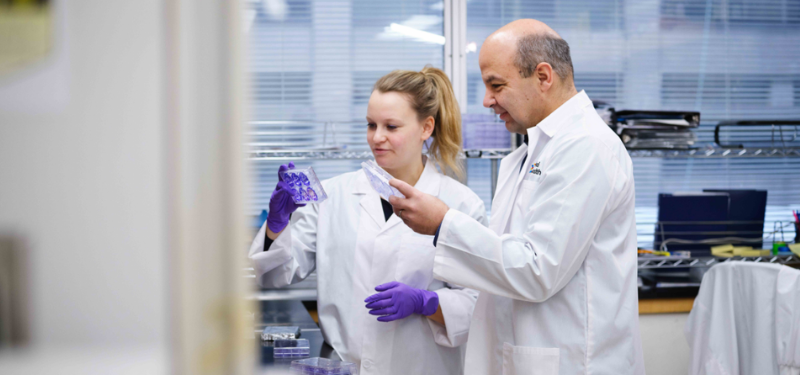
When thinking of the latest cutting-edge strategy for killing cancer cells, scientist Daniel Durocher pictures a chair.
Knock out one leg of the chair and it remains standing. Knock two out, and the chair comes crashing down to the floor. Durocher sees cancer cells as chairs missing a leg and our healthy cells as chairs with all four legs: find a way to knock out a leg and you would destroy only the cancer cells without damaging healthy cells.
The Sinai Health researcher and Associate Director of Discovery Science at the Lunenfeld-Tanenbaum Research Institute (LTRI) uses that process, called synthetic lethality, as the foundational concept of what’s now his multi-million dollar therapeutics company, Repare Therapeutics.
His peers in both academia and industry are now taking note. The LTRI scientist was recently named as a finalist for the 2021 Bloom Burton Award, an honour that recognizes individuals who made the greatest contribution to Canada’s innovative healthcare industry.
“I’m extremely touched and proud that our work in the field of cancer therapeutics is being recognized by the biggest and best in Canadian health care investment and entrepreneurship,” said Durocher. “Repare is an example of what can be accomplished when academia and industry work together to create something with the potential to transform how cancer is treated.”
Dr. Stephen Lye, interim Director of Research at the LTRI, said he remembers when Durocher was first recruited to the LTRI in 2001. He said Durocher quickly established himself as a world-leading molecular biologist in the field of DNA damage repair and genome instability, and a pioneer in the field of synthetic lethality.
Lye said the success of both Durocher and Repare is all the more impressive considering the path to gain early stage funding for scientific ventures is far less developed in Canada compared to the US.
“His research has not only led to remarkable discoveries, but it’s been incredible to see the translation of these discoveries into an early stage venture through Repare,” said Lye. “Forging lines between academic and early stage drug discovery is critically important as this is where innovative medicines are discovered.”
For more on Dan Durocher, how he felt after his first major breakthrough and what’s on his bucket list, click here.









